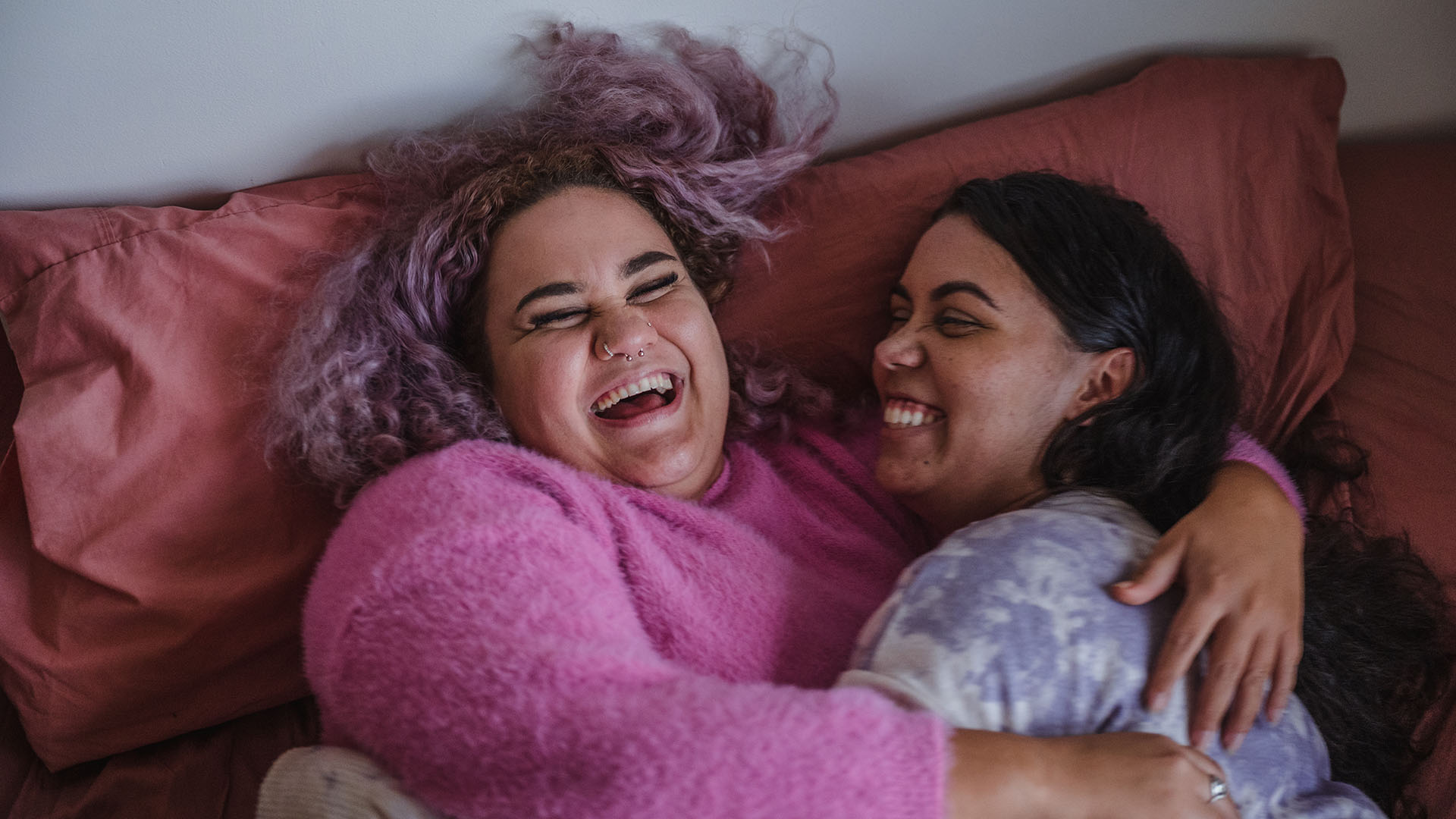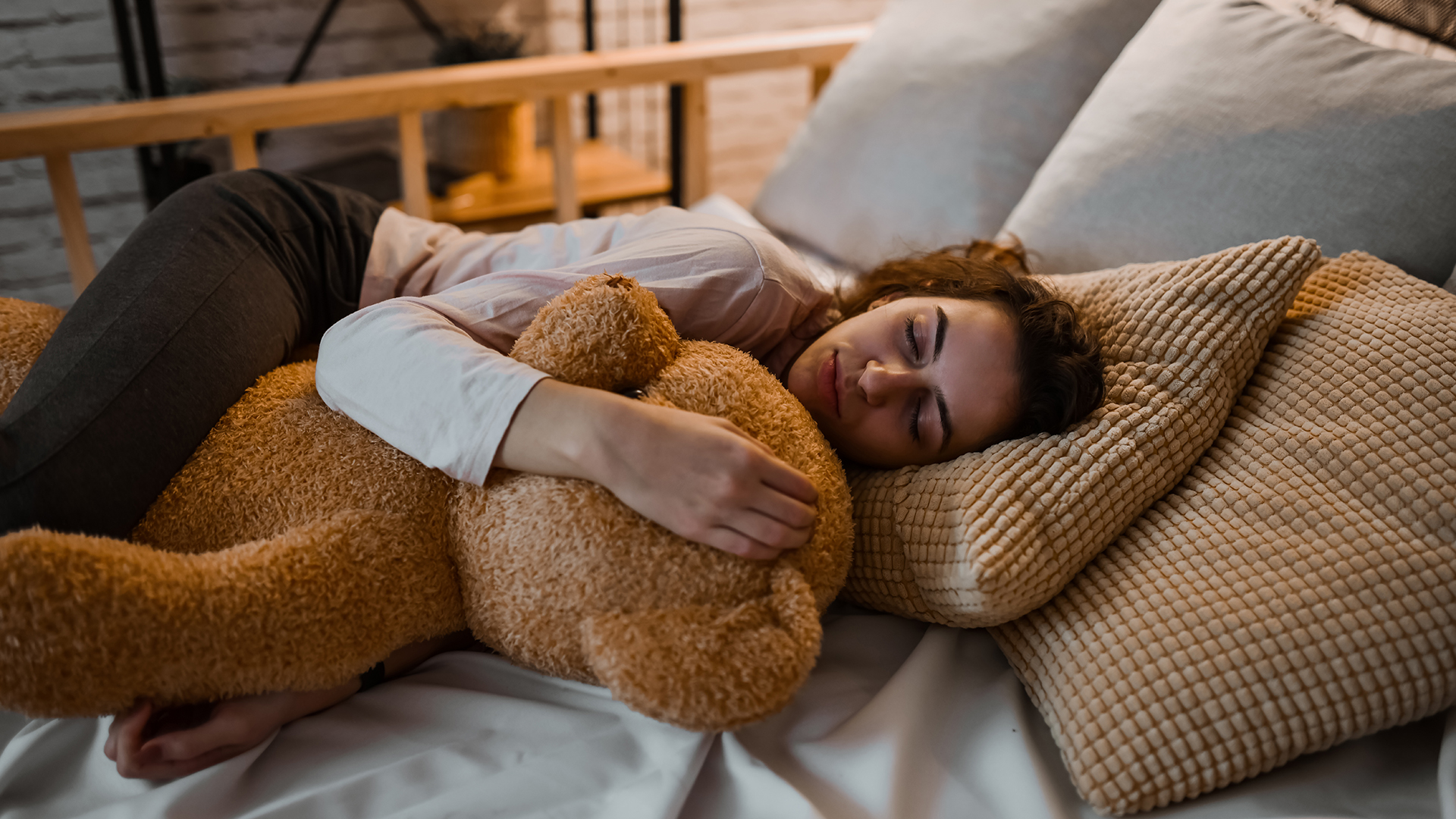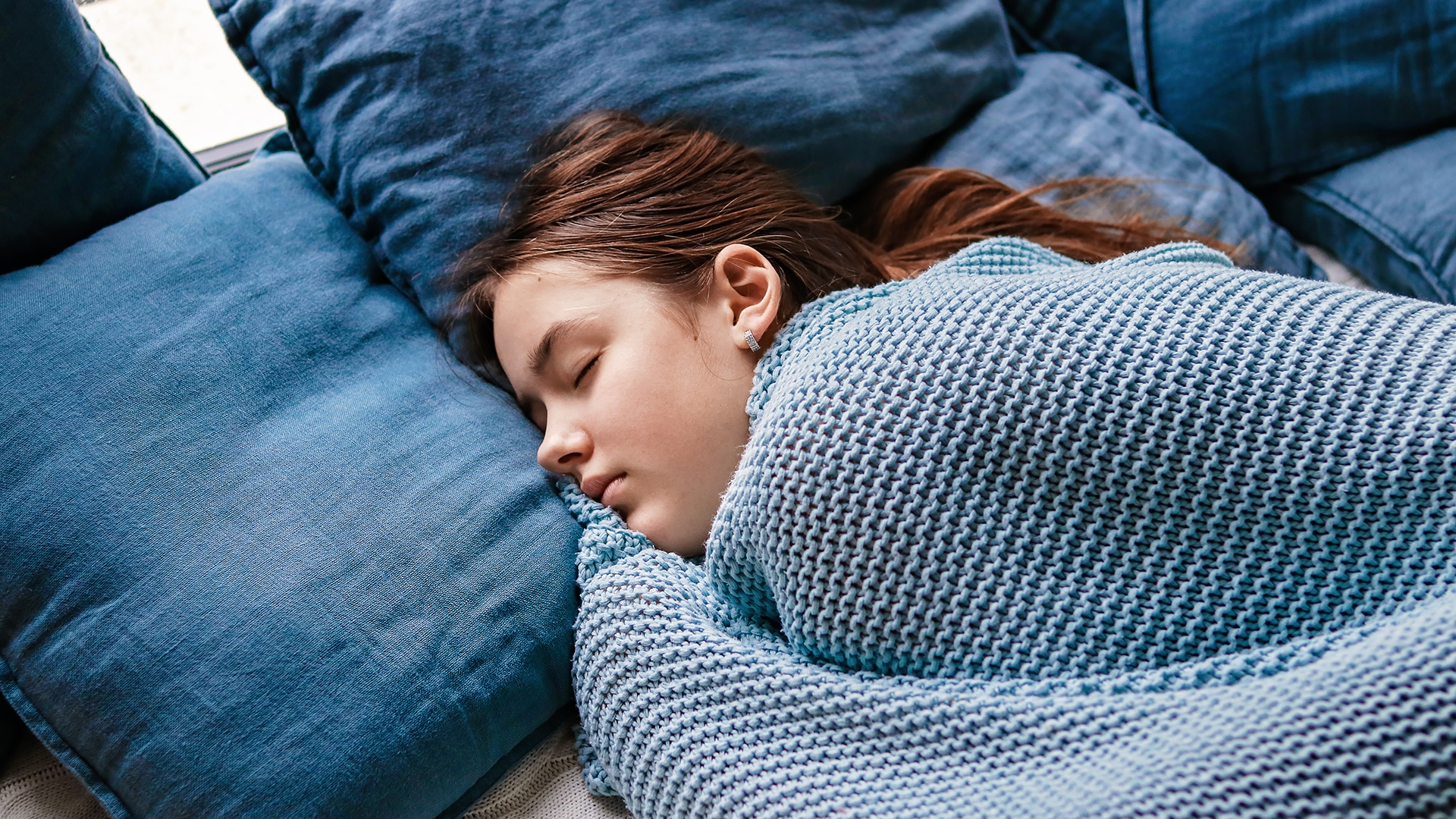Should we all be hugging for our health? A cuddle with a loved one might be good for more than just a warm feeling inside – it could be what you need to fall asleep when you’re feeling stressed.
That’s the opinion of Mikey Goldman, founder of Quiet Mind, anyway. “By hugging something for 10 seconds or more you’re able to naturally release oxytocin,” says Mikey. “This helps you feel more safe and secure, more grounded, and gives you a sense of companionship.”
Oxytocin, known sometimes as the cuddle hormone, is responsible for that cozy feeling we get when we see someone we care for – and what better feeling to fall asleep to than falling in love? In this guide, we’ll explore what oxytocin is and how to introduce it to your bed time routine (no partner required).
A comfortable sleep setup can also help you feel more relaxed and secure in bed. Check out our best mattress guide for our favorite options.
What is the ‘cuddle hormone’?
Oxytocin is a neuropeptide that is produced in the brain and released by the pituitary gland during moments of positive social bonding and physical touch. The release of oxytocin triggers that warm and cozy feeling we associate with contentment and love. Oxytocin has many nicknames – the cuddle chemical, the love hormone, the feel-good hormone, etc – all referencing that happy glow we experience when it’s released.

Falling in love isn’t exactly a practical way to drift off, but don’t worry, there are others ways to trigger the release of oxytocin. “[A] very simple way to release oxytocin is by hugging someone or something,” explains Mikey. A quick hug? That’s something we can all squeeze in before bedtime.
How can cuddling help sleep?
Sleeping when stressed can feel like an uphill battle, especially as, frustratingly, worrying about stress tends to just add more stress. “Nighttime anxiety is when your nervous system is in a heightened state of distress and you’re battling a fight or flight response. It’s also why you can feel completely awake and alert, because the nervous system is what controls your emotions,” explains Mikey.
The hormone primarily responsible for this stress response is cortisol. When you’re feeling anxious, your body tends to be flooded with cortisol. The other time your cortisol levels peak? Right after you wake up in the morning. No wonder we feel so alert when we’re stressed. But you can target this by triggering the release of a more soothing hormone – this is where cuddling comes in.

“By hugging a weighted pillow, you start to suppress your cortisol levels while also increasing the production of melatonin, which is your sleep hormone,” says Mikey. A soothing hug might not immediately send you back to sleep, but it can increase the levels of calming and happy hormones (such as melatonin and oxytocin) flowing through your body, to combat the effects of cortisol.
Let’s get cuddling – no partner required
Of course, we don’t all share a bed with another person (and even if you do, waking your partner for a quick 3am hug might not be very well received). Luckily, there are plenty of other options for getting cuddle chemicals flowing.
“Yoga, listening to music, being kind, spending time with friends, and even petting dogs have been shown to release oxytocin,” says Mikey. Try incorporating a few minutes of gentle yoga into your wind-down routine, or find free white noise for sleep and start drifting off to your favorite soothing sounds.
And you don’t have to hug a person – a pet can work just as well (although, good luck getting your cat to settle in for a cuddle in the middle of the night).

But if it’s that warm glow we associate with positive touch you’re after, consider a weighted blanket for anxiety. The best weighted blankets provide a grounding cuddle that mimics the pressure of a human hug. Or wrap your arms around a weighted pillow, such as the Quiet Mind Weighted Pillow.
While weighted pressure can add to the cuddle experience (thanks to the Deep Pressure Stimulation effect), you can achieve similar results just by snuggling up with your normal pillow or a stuffed toy. “This is one reason so many people love hugging a pillow while sleeping or sitting on the couch,” says Mikey. “It makes them feel more safe and secure.“
If that wasn’t convincing enough, we have one more reason to hug your pillow in bed: it might improve your posture. Hugging a pillow to your chest can help you keep a supportive sleep position overnight, taking pressure of the spine and joints. Tuck another pillow between your knees for a full body hug that unleashes the cuddle chemical while limiting aches and pains.













